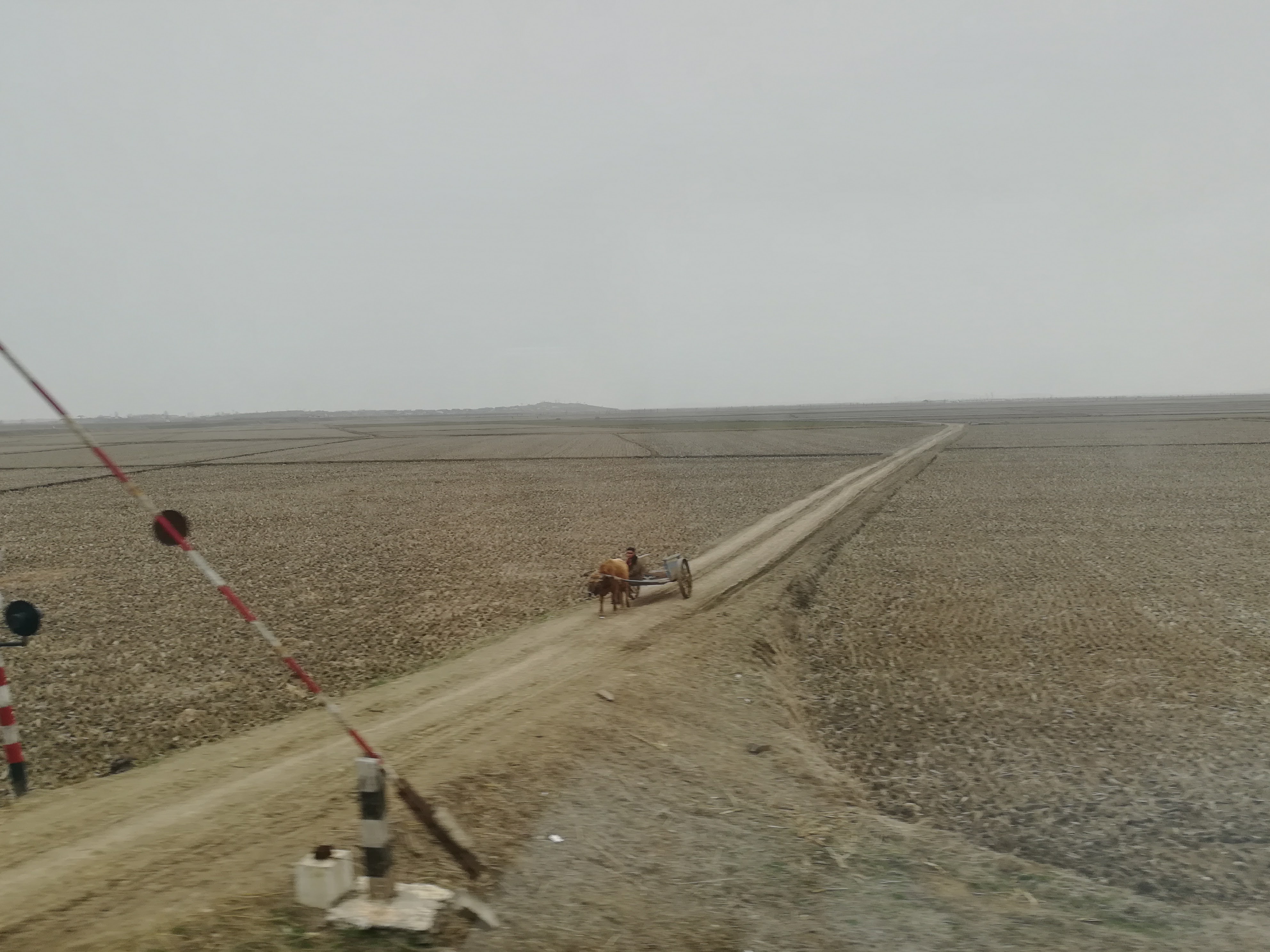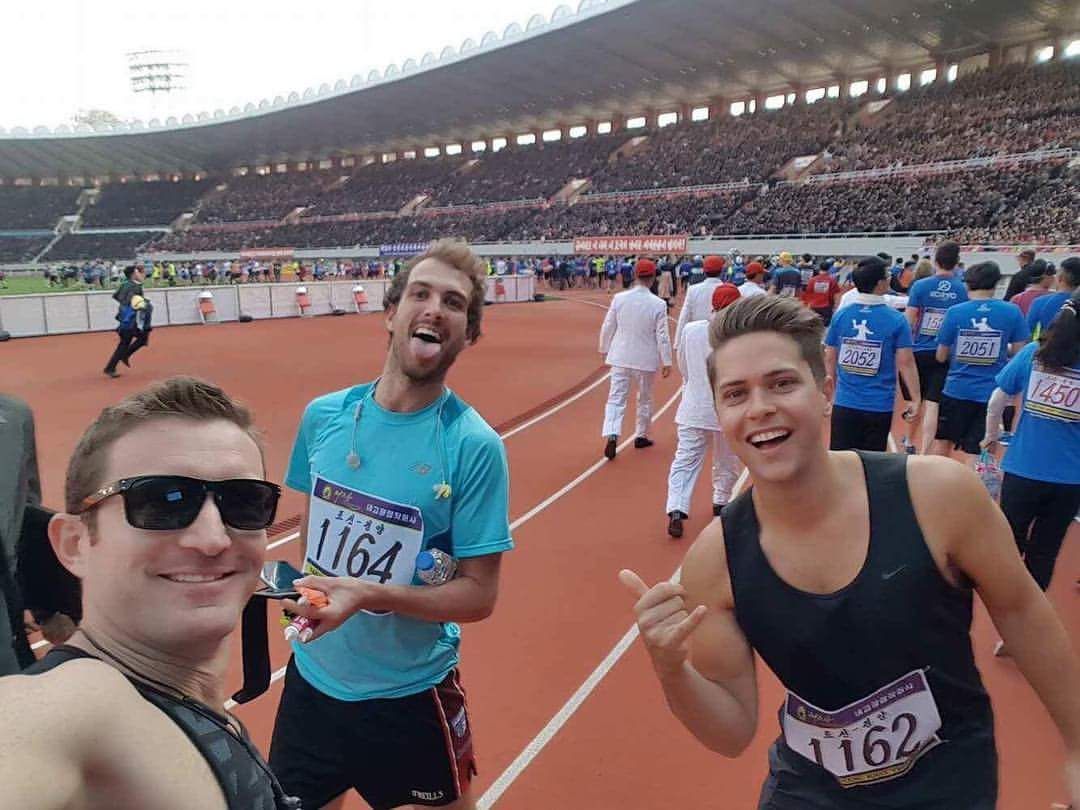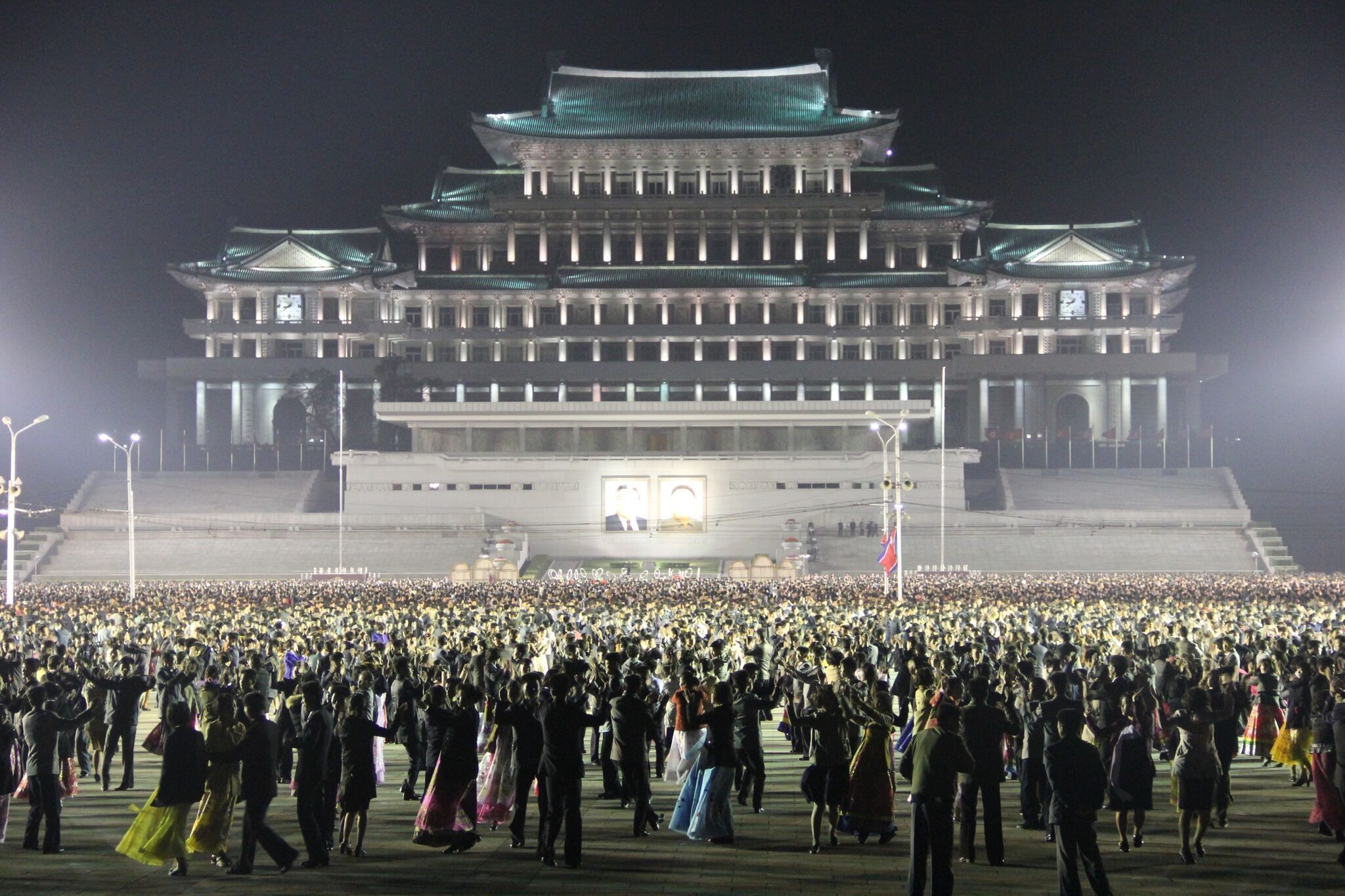

Share
24th April 2017
05:04pm BST

McCormack ran the Pyongyang marathon a couple of weeks ago. During a four-month trip across Asia, he wanted to run a half marathon and he decided Pyongyang was the place to do it.
There was the option of a marathon too, but once you had made up your mind, there was no going back. North Korea isn’t a place for free expression.
McCormack told his family a few days before he headed for North Korea that it was the next stop-off point on his journey. “I didn’t have the heart to tell them before that,” he says.
He took a train from Beijing to Dandong on the North Korean border. That took 13 hours and after a two-hour wait, he headed for Pyongyang. Once he entered North Korea, he lost all contact with the outside world.
This might be disorientating at the best of times, but of course this wasn’t the best of times. The marathon took place on April 9th, part of the week-long celebrations to mark the birthday of Kim Il-sung on April 15th.
As part of those, eh, festivities, North Korea was said to be planning a new nuclear missile test. As McCormack was in Pyongyang, North Korea was warning of “catastrophic consequences” after a US aircraft carrier was reported to be heading for waters off the Korean peninsula.
McCormack may not have anticipated all this. As his train headed for the capital in a six-hour journey from Dandong, McCormack was able to take note of and take pictures of countryside and the condition many North Koreans live in.
“The countryside is barren wasteland. The whole thing has been wiped clean, every hundred miles there’d be a group of ducks but that’s it,” he says.

The countryside is not the part of North Korea officials want foreigners to see. Instead they are encouraged to see Pyongyang and the sparkling buildings, some of which McCormack believed had been built but had nobody in them.
“It’s a weird place, the city itself is a strange shade of pink and green. It’s like being in Hariboland.”
There were other problems for a man who had been travelling for four months and had no doubt that he wasn't at his physical best. The authorities had ruled a couple of days beforehand that the cut-off point for runners would be four hours. The race would begin and end at the stadium but after four hours, the stadium would shut and anyone on the wrong side would be left outside.
McCormack’s aim was to switch from the half marathon to the marathon, something he managed to do the night before, but it wasn’t without complications.
“The first thing when you get off the train there is a cameraman filming you and he knows your name and he spends the whole trip filming you.”
In that environment, it might be considered bad form to make some administrative changes but McCormack managed it, thanks to the new cut-off point. He found a man who feared he wouldn't make the new time, swapped with him and, after some pleading with the authorities through their tour guide, he was in.
The race began in the stadium with 50,000 North Koreans cheering them on. One hundred foreigners took part in the marathon with 700 entered across all the events. The crowd gave them a welcome they wouldn't forget.
“These people are told the day before they’re going to the stadium. You do an opening lap before everyone goes around and they’re screaming. They’re all there in their military gear. 50,000 people. I don’t think I’ll get a better opportunity to run in front of that kind of crowd, unless I get a lot better. It was one of the most bizarre things I’ve ever experienced.”
McCormack says it was like the opening stages of a game of FIFA with the roar of a crowd willing them on. He then headed out of the stadium on the straightforward 13-mile route out and 13-mile route back.

His goal was not to run a great time but to absorb all around him on a run he is unlikely to ever do again.
As he got further from the centre, he encountered more military plant workers and others who appeared to have been sent out onto the road to cheer.
“There's very much a sense that these people aren’t there by choice. You could see that some people wanted to high five, but you could see that other people didn’t want to be seen to do the wrong thing.”
When one of McCormack’s friends collapsed, he says people stood around for about five minutes before intervening as they didn’t want to step out of line.
Happily McCormack managed to make it back to the stadium under the cut-off point, where he could run again in front of the adoring supporters. Looking back, he says the whole thing was “madness”, but he didn’t know when he was there how mad things were getting.
They hung around Pyongyang until the following Thursday. On the Wednesday they witnessed 100,000 people doing a dance in honour of Kim Il-sung ahead of the weekend celebrations, which included a display of the latest intercontinental ballistic missiles.

He says the locals had no idea of the geo-political turmoil going on. As an example, he says those he talked with had no idea about the murder of Kim Jong-Nam, the half brother of Kim Jong-un. “Nobody knows he exists there, let alone he got killed,” McCormack says.
But, beyond the strangeness and the alarm he felt once he realised what had been going on, the memory that will remain is of the people. "They were really friendly and always wanted to help, even if you could tell they were scared a lot of the time," he says.
While he was there, the crisis was escalating. Donald Trump was promising to take control of things and nobody felt that was going to help.
https://twitter.com/realDonaldTrump/status/851767718248361986When he was there, without email or telephone, he also had no idea what was going on around him. “All hell was breaking loose and we had no idea,” he says, adding with some understatement, “Jesus, I was happy enough to get out of there.”
Explore more on these topics: